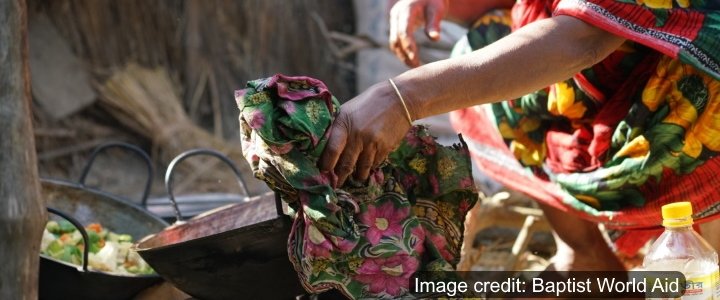Simon has served on ACFID’s Code of Conduct Committee (CCC) for the last 6 years as the Australian Community Representative. As he steps away later this year, Simon reflects on his unique role on the Committee, the sector, and the changes that he has contributed to over the years.
As Simon vacates the position, we are recruiting for a new Australian Community member on the CCC – find the position description here. Be quick, expressions of interest close on October 22.
When I took up a position on the Code of Conduct Committee, I was concerned by how I would be a ‘representative of the Australian community’; I feel representative of only a part of the community, and not a part with a significant interest in the work of ACFID. But I came to terms with the ‘representative’ issue quite soon into my term.
Differently from other Committee members, I have not worked in the development sector, so my role for ‘the Australian community’ has been to ask questions, to better understand what is happening and why. As with any professional group, there is a risk that discussion and decisions become closed, and that jargon and shorthand obscure issues and nuance. I think my ‘outsider’ participation has helped to tease out some detail, to clarify and focus some of the discussions, and to gently challenge some assumptions.
As it happens, I was aware of international development from my own work in human rights law and access to justice; I have been a consultant on a number of justice-related development projects in Indonesia, Vietnam and China. But I came to realise, that’s not really ‘working in’ the development sector. I was merely a consultant, contributing my expertise to small parts of large projects that had been conceived, designed and managed well out of my sight. Being on the Code of Conduct Committee introduced me to the vast, complex, sophisticated world of international aid and development, its history, culture, practices, procedures and politics.
For an outsider, representing the largely unaware Australian community, there has been no shortage of opportunities to ask questions! Nor have I wanted for available knowledge and insights to answer those questions. The Committee members and the Code Secretariat are wise, patient and generous; our quarterly meetings have been something to look forward to, and that I will miss.
I joined the Committee as it was undertaking a comprehensive revision of the Code of Conduct, and my first year was spent reviewing an extensive consultation process. As a result, I had the privilege of getting in on the ground floor; the current, revised Code is the only one I have known; it came into effect on 1 June 2017.
Reflecting on my time on the Committee, the Code and its committee are a study in regulation. The Code is intended to enhance the transparency, accountability and effectiveness of ACFID’s members. This is an ambitious goal; ACFID has over 130 member organisations, from the large and international to the small and local, working to address poverty, inequality and humanitarian relief.
I have been intrigued and impressed by how effective a voluntary, self-regulatory code of good practice is in achieving this goal. Rather than the Committee’s having to investigate and deal with poor practice, the members largely police themselves. Members’ self-assessment of Code compliance is scrutinised by the Code secretariat and the Committee, and the significant effort that goes into ensuring compliance mitigates the risk of poor conduct actually occurring.
Some, but very little, of my time on the Committee has had to be spent investigating complaints of breaches of the Code. Instead, the success of self-regulation under the Code has created space for us to examine new and emerging issues for the development sector, such as financial wrongdoing; gender-based violence, sexual abuse and exploitation; social media images and messages; environmental sustainability; and disability inclusiveness.
Again, the complexity of how to set standards on these issues, applicable for all the environments and circumstances that ACFID members work in, is matched by the sophistication of the discussion and analysis that happens around the Committee table, supported by Code Secretariat.
I now register more clearly, and with much better understanding, the many incidental contacts the Australian community has with development activity, such as those late night television ads for donations to aid agencies; news reports of national charities regulation reform; the allocation of Australia’s overseas aid budget; Australia’s interventions in the Pacific and Asia; and the activities of international aid agencies.
The past six years have been fascinating and enjoyable. I think that I’ve managed to bring the Australian community into efforts to enhance aid and development by Australian agencies. Personally, I have come away with a much greater appreciation of how development work is done, and how we ensure it is done well. With regret, I leave behind valued colleagues and friends to continue the important work of the Committee

Simon Rice
Simon Rice has served as the Australian Community Representative on the Code of Conduct Committee for the past six years. Simon has worked and researched in anti-discrimination law, human rights and access to justice issues, and has practised extensively in poverty law in community legal centres. In Australia and internationally he has trained and advised a wide range of businesses, agencies and NGOs in human rights and anti-discrimination law and has consulted with NGOs on organisational management and strategic planning. He is a Professor of Law at the University of Sydney, and has taught at UNSW, Macquarie University and the ANU. In 2002 he was awarded a Medal in the Order of Australia for legal services to the economically and socially disadvantaged.









